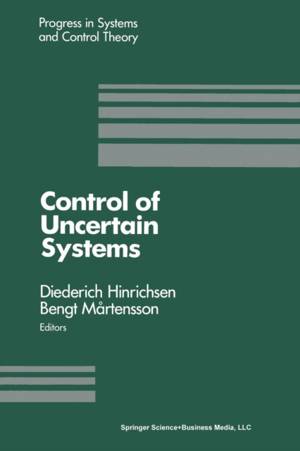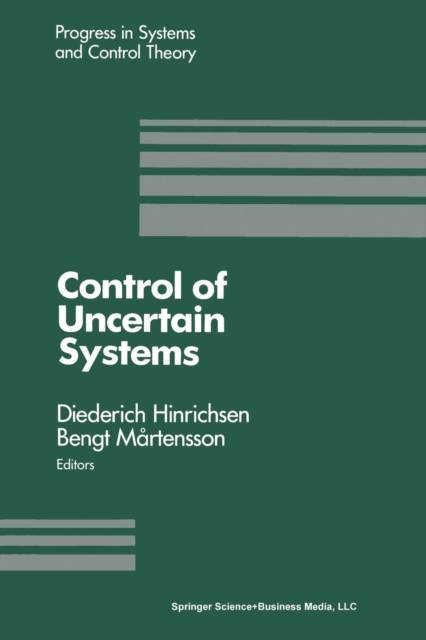
Bedankt voor het vertrouwen het afgelopen jaar! Om jou te bedanken bieden we GRATIS verzending (in België) aan op alles gedurende de hele maand januari.
- Afhalen na 1 uur in een winkel met voorraad
- Gratis thuislevering in België vanaf € 30
- Ruim aanbod met 7 miljoen producten
Bedankt voor het vertrouwen het afgelopen jaar! Om jou te bedanken bieden we GRATIS verzending (in België) aan op alles gedurende de hele maand januari.
- Afhalen na 1 uur in een winkel met voorraad
- Gratis thuislevering in België vanaf € 30
- Ruim aanbod met 7 miljoen producten
Zoeken
Control of Uncertain Systems
Proceedings of an International Workshop Bremen, West Germany, June 1989
Hinrichsen, Mertenson
€ 83,95
+ 167 punten
Omschrijving
Invoking the machinery of Control Theory to control a real-world plant means, on the basis of available a priori knowledge of the plant, design- ing/selecting a feasible controller accomplishing the control objective. A priori knowledge about the plant is normally represented as a mathemat- ical model, given by physical laws or measurement data. Such a model is inevitably uncertain, due to measurement errors, simplified models of natural laws, neglected dynamics, and the desire to get a model tractable for further computations. Control of Uncertain Systems is therefore an im- portant issue, both practically and philosophically. Basically, two different approaches exist: Adaptive Control and Robust Control. On four beautiful summer days in June 1989, researchers from 12 coun- tries gathered together in Bremen, West Germany, for a workshop devoted to these issues. 49 talks, invited and contributed, were presented. The present work collects 18 of these talks. (Program and original abstracts from the workshop are available as Report 209, Institute for Dynamical System.) The papers represent a broad scope of current trends in robust and adaptive control. Topics covered include: New directions in adaptive control, stability analysis of uncertain systems, robust and adaptive stabi- lization, numerical methods, and topological aspects of robust control. The papers were carefully refereed and we would like to thank the referees for their efforts, which have resulted in substantial improvements.
Specificaties
Betrokkenen
- Auteur(s):
- Uitgeverij:
Inhoud
- Aantal bladzijden:
- 345
- Taal:
- Engels
- Reeks:
- Reeksnummer:
- nr. 6
Eigenschappen
- Productcode (EAN):
- 9781475721102
- Verschijningsdatum:
- 10/03/2013
- Uitvoering:
- Paperback
- Formaat:
- Trade paperback (VS)
- Afmetingen:
- 152 mm x 229 mm
- Gewicht:
- 480 g

Alleen bij Standaard Boekhandel
+ 167 punten op je klantenkaart van Standaard Boekhandel
Beoordelingen
We publiceren alleen reviews die voldoen aan de voorwaarden voor reviews. Bekijk onze voorwaarden voor reviews.









